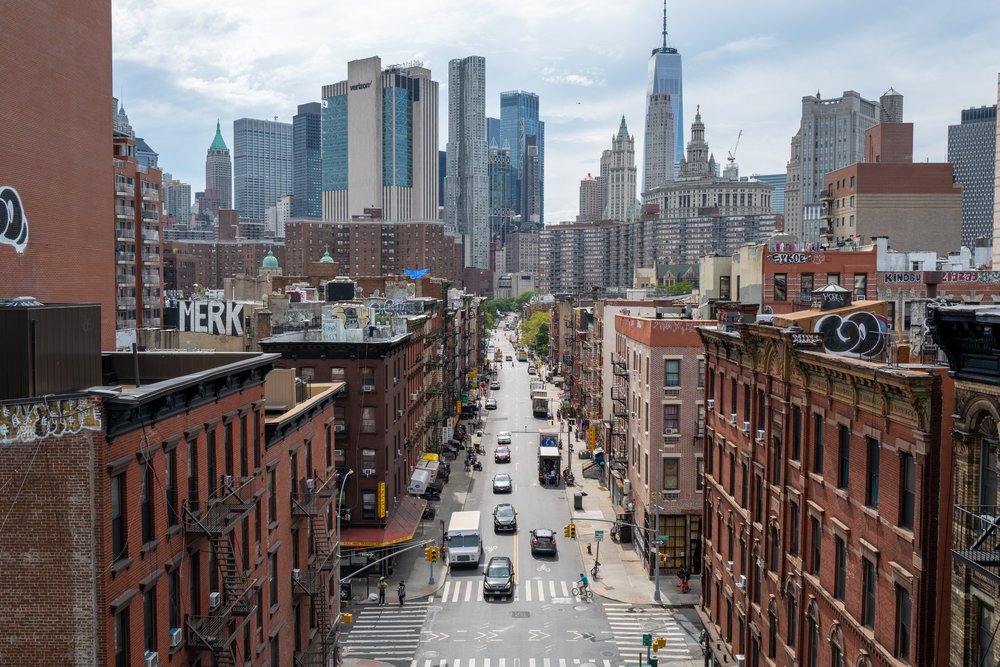NYC board votes to increase rents on 1 million rent-stabilized units by 3%
June 21, 2023, 8:08 p.m.
The increase applies to tenants in more than 1 million rent-stabilized apartments amid record-breaking rents in the five boroughs.

New York City’s Rent Guidelines Board voted on Wednesday to increase rents by up to 3% for tenants in more than 1 million rent-stabilized apartments.
The panel of nine mayoral appointees approved increases of up to 3% on one-year leases and a more complex increase for two-year agreements, with the first year of a lease increasing by 2.75% and the second year’s rent rising by 3.2% of the previous year’s rent.
The increases apply to new leases signed after Oct. 1 of this year for rent-stabilized apartments.
The board decided on the increases by a 5 to 4 margin, with the approval of tenant representatives. The vote marks the annual culmination of months of public hearings and analyses of tenant and landlord finances, with a specific focus on the impact of the COVID-19 pandemic.
Marty Goodman, a 73-year old retired MTA transit worker, said he’s “enraged” by the outcome of the vote.
“I’m not making a huge amount in my pension,” said Goodman, a former Transport Workers’ Union leader who has lived in a rent-stabilized unit for roughly 30 years. “The ruling clique that runs this city is really putting the squeeze on us — getting every drop of blood they can out of working people.”
For Bienvenida Paez, who uses a wheelchair, the rent is already “too much.”
“We can’t pay the rent,” Paez said, adding that increases to rent often cancel out any increases to disability benefits programs. “We don’t have the money to pay the rent they want us to pay.”
Demonstrators chanted, jeered and blew whistles as appointees went through various proposals, largely drowning out the panel vote.
The rent hike “reasonably and fairly reconciles the deep affordability challenges facing tenants in NYC while attending to the reality of rising costs and financing challenges facing owners,” said board chair Nestor Davidson.
Tenant representative Adán Soltren was among the five board members voting “yes” on the proposal. He told Gothamist that the group negotiated the increase through the weekend.
The decision immediately drew the ire of both tenant advocacy groups and landlords.
Landlord groups chided the board, arguing that the panel buckled to political pressure.
“The RBG ignored their own data and instead played to the intimidation of radical politicians and activists, depriving the largest providers of affordable housing of the revenue they need to keep up with skyrocketing costs,” said Joseph Strasburg, president of the Rent Stabilization Association, a group that represents property owners and managers.
Meanwhile, officials at the Legal Aid Society are sounding a dire alarm over the rent hike, calling it “immoral and bad policy that will deepen the local homelessness and eviction crisis that Albany and City Hall seem unable and unwilling to even address,” said Adriene Holder, chief attorney of the Civil Practice at the organization and a former RGB member.
The board voted last month to consider increases between 2% and 5% on one-year leases, and 4% and 7% on two-year leases.
It’s the second consecutive year that the board has increased rents by at least 3% under Mayor Eric Adams. Last year, the board approved a 3.25% hike on one-year leases after a partial rent freeze the previous year amid the global pandemic.
The board’s decisions typically correspond with the desires of the current mayor.
During Mayor Bill de Blasio’s tenure, the board voted to freeze rents three times and never instituted an increase above 1.5% for one-year leases.
In a statement following the vote, Adams lauded the board’s decision and noted that “the real solution to the affordable housing crisis requires building more housing.”
“Finding the right balance is never easy, but I believe the board has done so this year — as evidenced by affirmative votes from both tenant and public representatives,” Adams said.
Tenants packed an auditorium at Hunter College ahead of the vote, calling for a rent freeze and sharing stories about the economic hardship they are experiencing that would be worsened by a rent spike.
The board members considered a report prepared by staff that found that more than half of rent-stabilized households are considered “rent-burdened” according to federal housing guidelines, meaning that they spend more than 30% of their income on rent.
Rents continue to exceed record highs in unregulated units throughout the five boroughs after a brief dip at the height of the pandemic. Rent Guidelines Board data also shows that owners of rent-stabilized apartments are making nearly 50% more than they did in 1990 based on their “net operating income” — a metric that weighs landlord expenses and revenue before factoring in mortgage costs.
Households in rent-stabilized apartments earned a median income of about $47,000 last year, with median rents of roughly $1,400 per month, the board found.
Those numbers pale in comparison to New York City’s overall median income and its record-high rents on non-stabilized apartments.
Landlords who testified at previous board meetings said they are feeling the brunt of their own rising costs, especially since state lawmakers passed a series of reforms in 2019 that capped their potential revenues. Property owners argue that they are struggling to reinvest in their buildings, a problem only made worse by unpaid rent that mounted during the pandemic.
To find out if you live in a rent-stabilized apartment, contact New York state’s housing agency, Homes and Community Renewal, and make a request.
This story was updated to include comments and reactions from Mayor Eric Adams, tenants and housing advocacy groups.
NYC board to vote on rent increase for 1 million rent-stabilized units